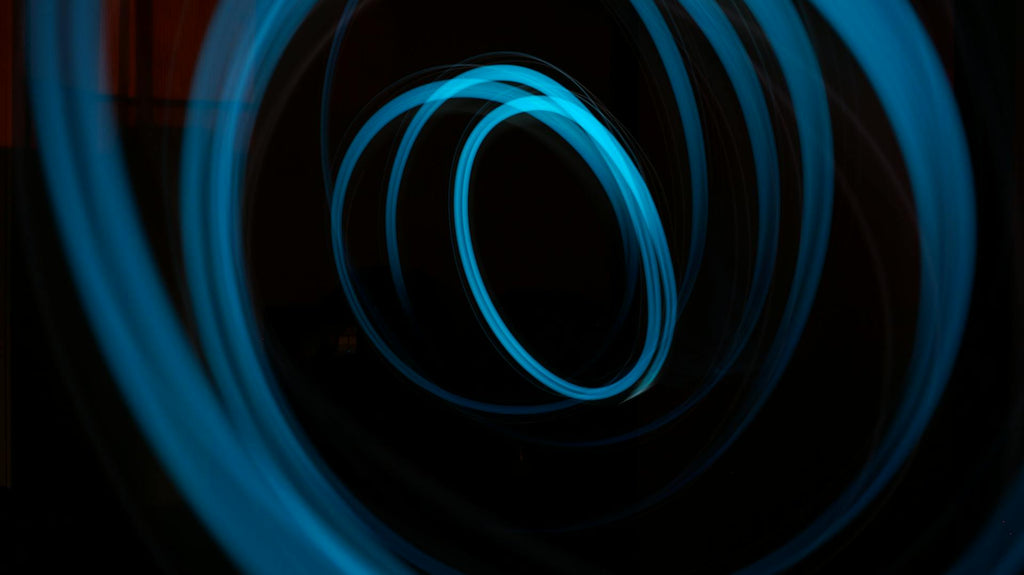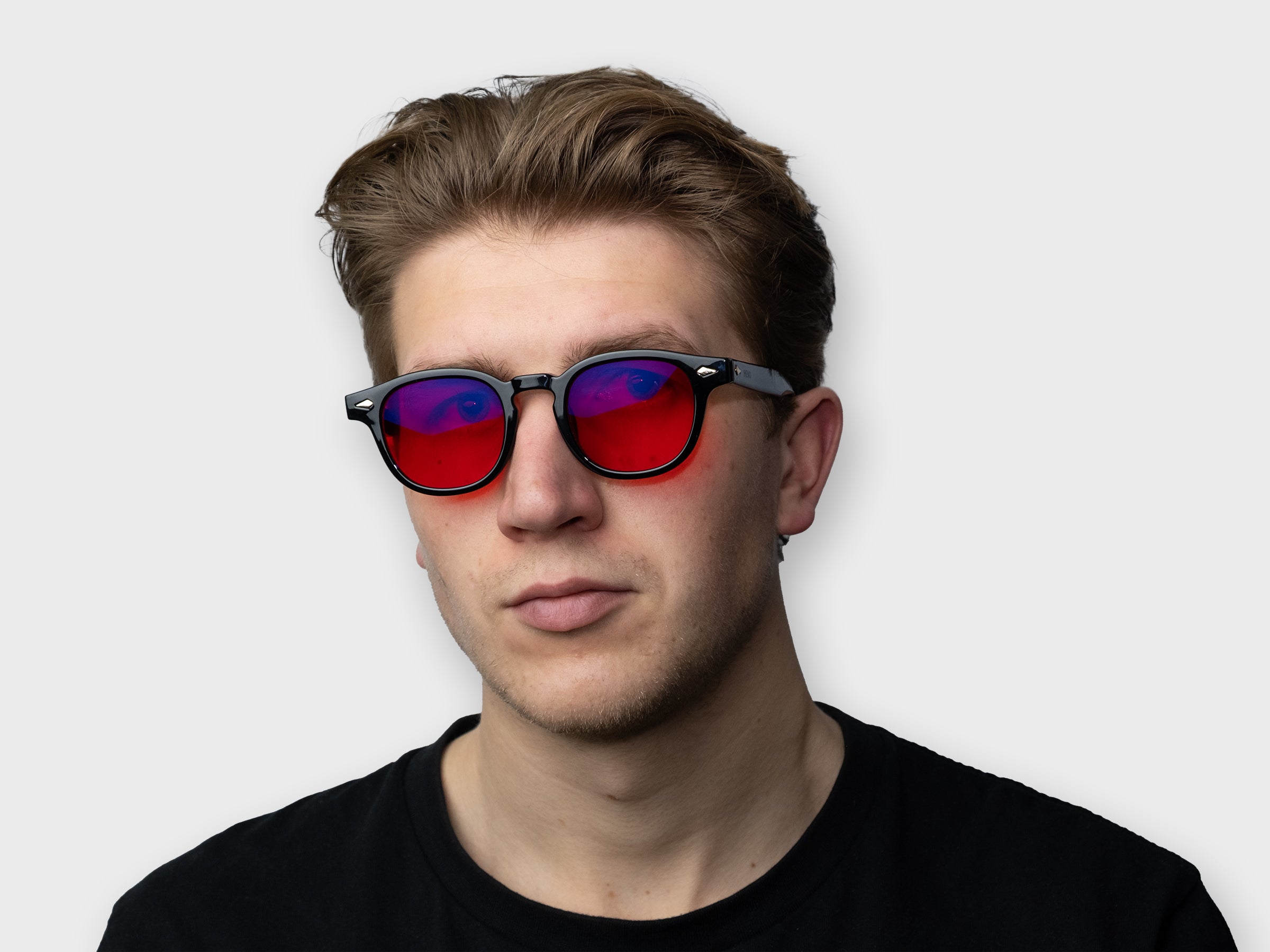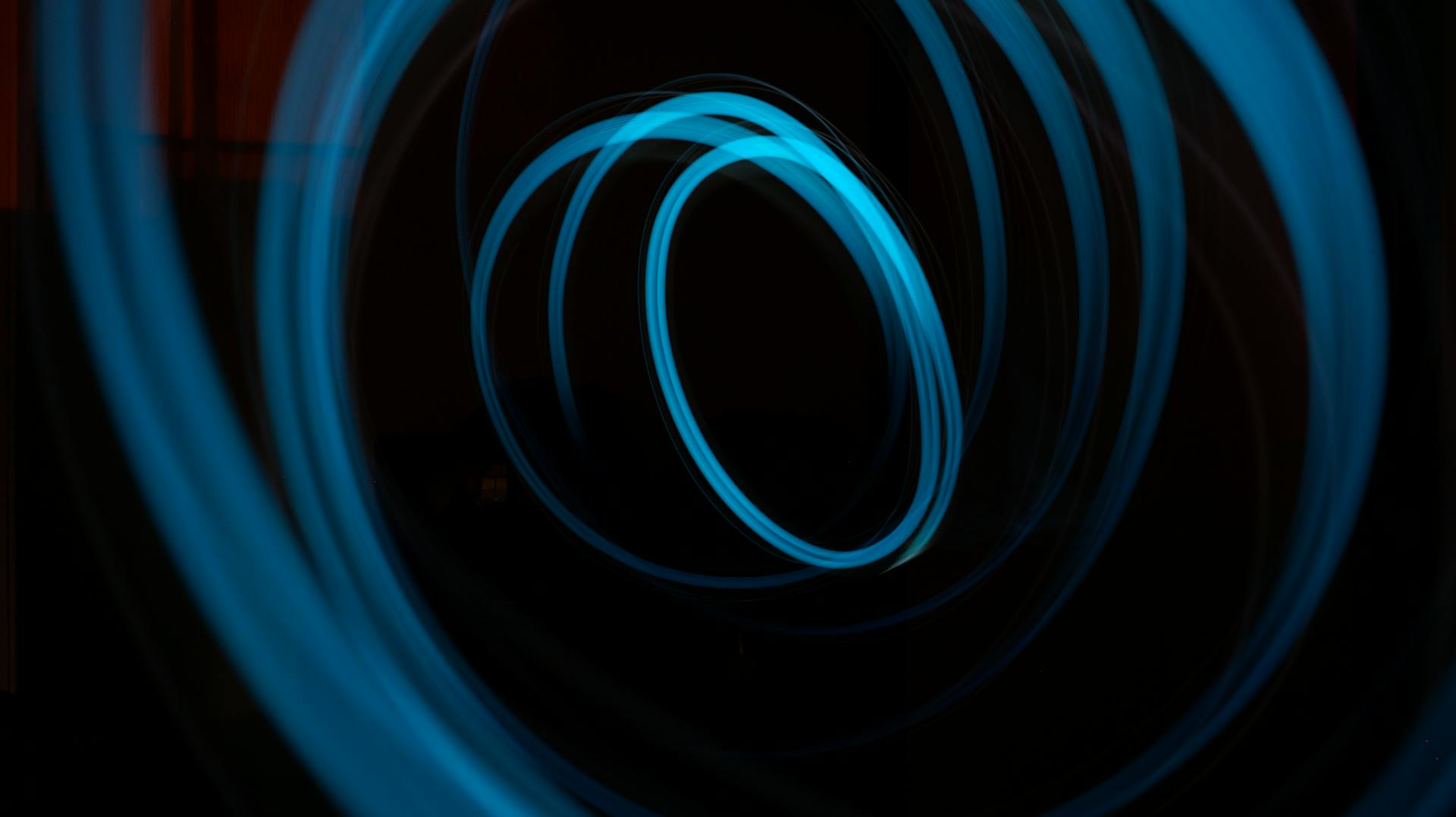
Blue light will affect your sleep and health negatively. Learn why it's bad for you and how to easily protect yourself with smart tips and blue light glasses.
What is blue light?
Blue light is part of the visible light spectrum, with shorter wavelengths and higher energy compared to other colors of light. It naturally comes from the sun, but today we are also exposed to large amounts of artificial blue light from screens on mobile phones, computers, tablets, and LED lights.
Although blue light plays an important role in regulating our circadian rhythm and keeping us awake during the day, it can become problematic when we are exposed to excessive amounts, especially in the evening.
Why is blue light dangerous?
1. Disrupted sleep
Blue light affects the production of melatonin, a hormone that regulates sleep. According to a study from Harvard University, exposure to blue light in the evening has been shown to delay melatonin production and impair sleep quality. This can make it harder to fall asleep and lead to lighter sleep. Read more about how to optimise your sleep here.
2. Eye strain and digital eye fatigue
If you've ever felt tired eyes after a long day in front of a screen, you're not alone. Blue light can cause digital eye fatigue, leading to symptoms such as:
- Dry eyes
- Headaches
- Slightly blurry vision
- Difficulty focusing
3. Potential risks to eye health
Research suggests that long-term exposure to blue light may contribute to retinal damage and increase the risk of age-related macular degeneration (AMD). A study published in Scientific Reports has shown that blue light can cause oxidative stress in the eye's cells.
How can you protect yourself from blue light?
1. Use blue light glasses
Blue light glasses are specifically designed to block or filter out blue light. They are easy to use and can be an effective way to reduce exposure. Shop our glasses here.
2. Limit screen time in the evening
Try to avoid screens at least one hour before bed. If that's not possible, you can activate "night mode" on your devices.
3.
3. Create a screen-free zone
Keep your bedroom free from electronics to create a calm, sleep-friendly environment.
Conclusion
Blue light is a natural part of our daily life, but excessive exposure can have negative effects on both our sleep and eye health. By being aware of the risks and taking simple actions, such as using blue light glasses and limiting screen time, you can protect yourself and your eyes.

Blue light blocking glasses

Sleep mask

Earplugs

